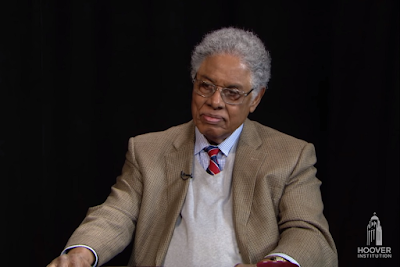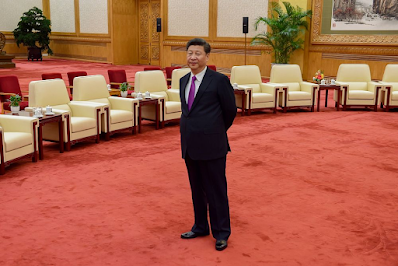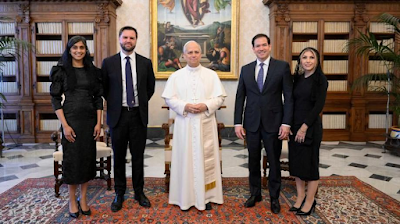Stephen Roney's Blog, page 11
June 9, 2025
Unforced Busing

One day last week, my city made all transit free in honour of “Clean air day.” The buses were packed.
Which made me think. The city is spending an enormous amount putting in new bicycle lanes, in hopes of decreasing our carbon footprints. Cyclists I know are not impressed. They say it is suicidal to ride a bike on them. I hear being a bicycle-based delivery person in a large city is one of the most dangerous jobs on record.
Add to that the fact that our city is under ice and snow for four to five months of the year, making cycling difficult.
Wouldn’t it be cheaper, simpler, and quicker to just make public transit free, to get people to leave the car at home? Pay for it out of general taxation, like the streetlights, or medicare, or the roads themselves? After all, transportation is almost a basic human need.
Perhaps not completely free; then people might use the buses for unnecessary trips. But keep fares quite low, perhaps $1 per ride; and free for seniors and students.
Two birds would thereby meet their maker: you would be cutting down on carbon, and you would be helping out the very poor. And, for that matter, giving a boost to local business.
Why not?
'Od's Blog: Catholic comments on the passing parade.
Just a Marker So I can Later Say I Told You So

It is becoming more obvious that the Chinese regime is collapsing. Having turned first to the iron fist, the CCP has predictably failed. Reportedly, systems are breaking down in China: internet blackouts, security cameras gone dead; explosions, fires, probably caused by sabotage; deflation, mass unemployment, business defaults, deserted shopping areas. The mandate of heaven is passing.
Now the party is turning in desperation to the tactic they most feared: the Gorbachev turn. Rumour has it that the leadership is to be handed to Wang and Hu, two relatively reformist figures. Trying to open up and restructure (glasnost, perestroika) without knocking down the whole house did not work for the Soviet Union. In China, it previously dead-ended in Tienanmen. That’s why they’ve been resisting it.
It might have still worked in 2012. I doubt it can work now; Xi’s hardline methods have burned through the residual popular legitimacy this needs. I expect the whole thing to blow within a year.
Putin too is suddenly in grave difficulty, thanks to the recent Ukrainian drone strikes. If he goes, China is more likely to go. If China goes, he is more likely to go. Not that these regimes are dependant on each other, or ideologically aligned; but a revolutionary spirit is contagious across borders.
Indeed, we already live in revolutionary times, and most established regimes look unsteady. Trump is staging a peaceful revolution in the US, as Milei is in Argentina, and Meloni in Italy. The regimes in France, Germany, the Netherlands, the UK all face hurricane-force populist headwinds. Klaus Shwab has stepped down. No telling who’s next.
'Od's Blog: Catholic comments on the passing parade.
June 4, 2025
The Essential Truth of the Residential Schools

Greg Piasetzki writes today in the National Post: “in 1946, decades after the first residential schools were built, the Globe and Mail reported that, ‘Of the 128,000 Indians in this country, only 16,000 last year received formal schooling. Of this number, few stayed more than a year and only 71 … reached Grade 9.’”
This simple fact explodes the myth of the residential schools. Attendance was not compulsory--even though school attendance was compulsory for non-native children. Had mistreatment occurred, or “cultural genocide” been on the table, parents could simply withdraw their children. The government, and the churches, were offering a service: education in useful trades, plus, in the case of the residential schools, free room and board.
Eventually, the truth will come out. But we will never be able to recover all the historic churches burned down, the statues pulled down, the heritage lost.
'Od's Blog: Catholic comments on the passing parade.
June 3, 2025
Sowell and Intelligence

Thomas Sowell argues against the idea that intelligence can vary by race, pointing out that different populations have risen over history, while others have fallen back. China was more culturally advanced than Europe from the Dark Ages to about 1500. Then Europe sped ahead. Southern Europe, Greece and Rome, was more advanced that Northern Europe until the Renaissance; but by the Enlightenment the South had slipped into relative backwardness.
The fortunes of nations change, and intellectual leadership seems available to any group at random.
The first point to make about this argument is that it acknowledges, contrary to current “anti-racist” ideology, that cultures can indeed be superior or inferior: Chinese culture was more advanced than European until 1500, and so forth. This makes nonsense of the claim that the “Western” education of Canadian First Nations children, for example, was “cultural genocide.” Or the insistence that an English curriculum must feature an equal number of African or aboriginal authors, or it is racist.
The second point is that the principle of human equality is not an assertion that all people are equal in intelligence. That claim is obviously false. It is that all people are equal in human dignity, in moral worth. They are equal in the eyes of God, and all made in the divine image. This understanding has been perverted as we have lost our religious principles. We forget that liberal democracy is built on Christianity.
Individuals differ in innate intelligence, according to casual observation and IQ testing. It is therefore reasonable to assume—and demonstrable with IQ testing--that families and bloodlines also differ in innate intelligence. They share, after all, much of their genetics. Then, as it is reasonable to assume that intelligence, if innate, can run in families, it is reasonable to assume that intelligence runs in nationalities or “races,” as they too share some of their genetics.
We can observe that different ethnic groups vary in their athletic abilities. Black Africans dominate running sports at the Olympics; black Americans dominate basketball, boxing, and football. Canadian and American native people have always been prominent in sports: Tom Longboat, Jim Thorpe. As this is visibly true, it stands to reason that genetic groups can also vary in their intellectual abilities.
And we see this in different breeds of domestic animals: they can and have been bred for intelligence, in order to perform given tasks. A border collie is usually much smarter than an afghan hound. Intelligence is therefore innate, and can be bred.
One does not, by the way, need to believe in the theory of evolution to know that this is so. Breeding for specific traits can be observed in the wild, even though the actual emergence of new species cannot.
It is only politics that makes us resist the premise that different races or ethnicities differ in average intelligence. Noting, of course, that this is a question of averages, and individuals must be evaluated as individuals: not by the colour of heir skin, but the content of their character.
It seems reasonable to assume that, just as domestic animals are bred for desired characteristics, any culture will spontaneously breed for whatever characteristics it most values. Those who possess that particular characteristic will have more wealth and more opportunity for survival, be seen as more desirable marriage partners, and therefore will have a greater opportunity to marry and have more children. So a culture that values, admires, and rewards learning and intelligence will grow over time more intelligent. A culture that values music will become more musical. A culture that values beauty will grow more beautiful. And a culture that requires athletic skill and fast reflexes for survival and prosperity will favour and develop in this direction, rather than intellectually.
And indeed, differences in average IQ among racial groups are measurable by IQ test.
The common argument, of course, is that these tests are culturally biased. This is an obvious possibility. But if so, how explain why East Asians do better on European-designed IQ tests than Europeans do?
This difference in average intelligence does not yet explain how cultures can rise and fall, how the baton of intellectual progress can pass from one group to another, as Sowell notes. One explanation is that intelligence is not the only factor that leads to cultural success. Some groups can no doubt be held down by oppression or discrimination. Some environmental factor may give you the free time to think and to innovate: discovering a vein of silver in your territory; being the sole source of purple dye; striking oil. The challenges of the environment can also change, as they do for evolution in the animal world. Some outside threat may make different talents more valuable. Or some technological innovation: the development of agriculture, say, or writing.
These, over time, will change the breeding pattern.
A challenging environment, causing difficulty in survival, marriage, and childrearing, will accentuate the particular virtues and values of a group. Conversely, an environment of too much ease and opportunity, where everyone can easily survive and raise children, should cause a regression to the mean. This too can explain why groups can rise and fall on the civilizational totem pole.
This all raises an obvious concern: couldn’t a government decide to control breeding to produce a superior race—the Nazi concept?
But even given all this, even if that were desirable, and not a violation of the basic human right to reproduce, that is a mad idea. To see the effects of better breeding takes multiple generations; governments, and government policies, never last that long.
One quick way to produce the effect is through immigration. Immigrant societies have tended to benefit from this, at least in the days that immigration was difficult and challenging—so that the best and the brightest in their own societies naturally self-selected. The US, Singapore, Canada, Australia. One could, theoretically, screen immigrants by IQ test.
The other way to do it, and the way it has been most commonly done, is to change the cultural values. Which is to say, a new religion. Northern Europe was raised to the level of Southern Europe as it Christianized. China, I believe, benefitted from the strength of Confucianism. Religion is the setting and discernment of values: it is worship, “worth-ship.”
'Od's Blog: Catholic comments on the passing parade.
June 2, 2025
On Christianity's Decline
 Happy Mormons in harness
Happy Mormons in harnessFriend Xerxes laments the collapse of Christian congregations in North America.
Like him, I lament the decline of various well-established Christian denominations, the loss of community, of social cohesion, and, not least, the loss of many beautiful and historic churches. A vital part of our heritage is being lost, and nothing is being done.
On the other hand, it is worth remembering that this is a local phenomenon. Christianity is growing worldwide.
The problem also varies by denomination. The United Church, Xerxes’s church and the largest protestant denomination in Canada, is cratering, true; as are the Anglicans and the Presbyterians. And apparently in the US the Baptists are beginning to decline, despite America’s strong religious culture. These are, broadly, the “mainline” Protestant denominations.
However, the Catholic Church is holding its own in the US, while growing worldwide. Xerxes cites a decline in church attendance in Britain. But there is another story: in Britain, Catholicism has now overtaken Anglicanism in membership. Rather historic. Albeit probably fueled in large part by immigration.
I hear reports that Eastern Orthodoxy, although small in America, seems to be holding its own, or better.
And the Pentecostal and non-denominational evangelical churches are growing; including Assemblies of God, no small splinter group. I understand a lot of those who show up as “nones” in the stats are actually attending non-denominational churches. They may have no commitment to any specific denomination, yet be fervently Christian. The number of actual declared atheists or agnostics is actually only 4% and 5% in the US, respectively. And in the recent polls, that number is not growing.
So things are really not all that bad; I even smell a religious revival.
Xerxes suggests that the decline in numbers may be due to denominations splitting. Christian unity seems like a good thing, but I see no obvious reason why these two factors would be related. And Protestant denominations have been splintering for 500 years; this is not some recent phenomenon.
I think the most obvious reason for the mainstream decline is complacency. In prolonged peacetime and prosperity, people forget God. The last great burst of religiosity was just after the Second World War, and under the nuclear threat of the Cold War. There are no atheists in foxholes.
This would explain why the fervour is great in the Third World, yet in decline in the industrialized West.
The next cause, I suspect, for religious disaffiliation is that there are just a lot more things to do with our leisure time than there were before the Internet. Back in the day, going to church was the dress-up highlight of the family week; followed by a special meal and a Sunday drive. Toronto newspapers used to cover the sermons, in advance and in review. In smaller communities, tent revivals were the event of the year. Note there is now a decline not only in church attendance, but a comparable one in voluntary associations of all kinds: the Masons, the Oddfellows, the Legion, the Rotary Club, bridge clubs, the community band or choir. All compete now with streaming services, vast selections of free media, and video games.
The next cause, I think, and the one something can actually be done about, is that the mainline denominations have complacently focused on retaining instead of seeking members. Those not busy growing are busy dying.
A religion is, literally, a “binding.” It requires commitment. Denominations that are succeeding are denominations that make demands. Denominations that are declining are denominations that cater to whatever they think those in the pews might want.
There is no reason to belong to such a denomination. You want direction in life: you do not want to be polled and simply echoed. You might as well join a book club, or go to the gym. At least then you might be bettering yourself.
Consider the Mormons—the fastest growing Christian denomination, if you count them as Christian. No alcohol, no coffee or tea, no premarital sex, tithing, a two-year commitment of servitude, and so forth. And they are getting the lion’s share of the converts.
You might object that non-denominational evangelical churches are, by contrast, especially loosey-goosey. No commitment to any particular theology, after all.
But they too promise and demand a complete change in your life. The commitment is not to a particular set of dogmas or rules, but they demand a total commitment to Jesus and the Holy Spirit. You must repent in tears, you must give up your old sinful habits: promiscuity, drugs, alcohol. It amounts to the same thing.
When Methodism, now the United Church, made similar demands, it was similarly popular.
Within Catholicism, the growing branches on the vine are two: those that stress “traditionalism,” with fasting, rituals and prayers, daily novenas, sexual abstinence; and the charismatic movement, which mimics pentecostal forms of worship.
In other words, in all cases, the congregations that grow are those that give new members a mission, a meaning, and a yoke to hoist on their shoulders.
Growing congregations do not seek to conform to or appeal to or work with the world; they seek to depart from the world, or change the world individual by individual.
This is what people want, if they want religion at all. And whether or not most people want religion, all people need religion, and it is the duty of the religious to see that it is at least on offer.
A denomination must not be just a social club; and people have less need for social clubs than they once did.
'Od's Blog: Catholic comments on the passing parade.
June 1, 2025
The Death Wish
 Memento Mori
Memento MoriI still recall vividly a discussion I had one evening in first year university with a guy from Alberta, blonde, bearded, with granny glasses. I said that everyone had both a life wish and a death wish. He scoffed—preposterous. Nobody wants to die. And I was shocked, because I thought it was obviously true.
If my claim sounds Freudian, I did not get it from Freud. At the time, I knew little of Freud.
I meant simply that everyone secretly wants to die. There is an instinct that makes us fear death—easily explained by evolution. But there is another instinct that comes from somewhere else.
I say the evidence is everywhere.
Everyone craves a beach vacation, a cottage on the beach, with the vast ocean before them. Why? Because they can feel apart from the world, only steps from eternity. There is a deep calm to being near the ocean.
It is the same calm one feels when walking through a cemetery.
Why do others crave a vacation or a cabin in the mountains? So they can look down on the world from above, be above all that, away from it all. Life looks small and insignificant and far away.
Why do people, for that matter, want to read novels, or watch movies? To escape, at least for a few hours, from their lives and from themselves. To forget they are there and just watch life go by, as God does. As saints in heaven would.
And why do young men actually seek risk, and danger? Why do they often eagerly sign up for war?
The secret thrill is that they might die.
Each of us has an intuition that there is a somewhere else, a more perfect world. Each of us has an intimation that daily life is not our home. We yearn. We feel a nostalgia without knowing what for.
This, not incidentally, is behind many modern diagnoses of depression. The good doctors will always assume a desire to kill oneself or die to self is pathological, a “mental illness.” They will consider a general disappointment with the world a "mental illness."
This because they want to deny the existence of the spiritual. They act as materialist inquisitors against the heresy of idealism.
But the heart knows what it knows. Those who lack a secret death wish lack a soul.
'Od's Blog: Catholic comments on the passing parade.
May 31, 2025
Broken China
 Where did everybody go?
Where did everybody go?The world is changing.
Now something seems to be happening in China. There are now enough rumours to convince me that Xi is on his way out.
I thought the Xi style of government was a desperation move by the CCP in the first place. My Chinese friends had asserted long ago that the CCP no longer had any philosophical or ideological capital with the people. The general public was simply ready to ride along so long as everyone was getting richer. Why rock the boat?
But by 2012, it was probably clear to Chinese leadership that economic turmoil was coming. China was facing demographic collapse. Even without it, they were reaching the limit of what economic progress could be achieved by cheap labour: the supply of such labour was running out. It was also only too likely that much of China’s progress and economic strength was always a matter of faked figures and Ponzi schemes. Any system that relies on central planning and not market forces will breed faked production figures and official corruption. There is immediate incentive to do it, and no effective checks against it.
So, fearing what happened in the Soviet Union, the CCP took the opposite course: cracking down instead of opening up. Going back to Maoist tactics. Appealing to fear and ideology. That was Xi’s mandate. He was the guy prepared to try it.
It was bound to fail; now it has. Because it cannot solve the economic problem or the demographic problem, things have gotten worse for the population, and there are growing protests. At some point, the regime must fear the army revolting and refusing orders.
This to me explains Xi’s sabre rattling. Otherwise, it is crazy to systematically alienate all your neighbours as Xi has. And, if you believe you are a rising power, it makes more sense to lie low and look unthreatening while your power grows. The only explanation for China’s growing bellicosity that makes sense is that Xi was eager to keep the people focussed on a foreign enemy to deflect anger from the central government. And, at the same time, to keep the military on the borders, instead of near Beijing, to reduce the risk of a coup.
But the upshot is that China is increasingly isolated internationally. And this has led the rest of the world, especially Trump’s America, to play rougher on trade, intensifying the regime’s economic problems.
So now it seems the faction led by former leader Hu Jintao has regained ascendency, and are demanding a return to the prior policy of opening up.
This too is risky; risker now than in 2012, when the Politburo decided it was too risky. We may see a sudden collapse like that of the USSR.
But at this point, China is running out of options.
'Od's Blog: Catholic comments on the passing parade.
May 30, 2025
On Praying by Rote Like a Trained Seal. Not.
My Protestant pals, including friend Xerxes, generally scorn traditional prayers. They argue that people only say them by rote. They hold that real prayer must be self-composed, to express the emotion of the moment. Like talking to a friend.
For many years, I accepted this basic premise. I was educated for nine years, after all, in Protestant departments of Religion.
But what was the upshot of this belief? That I stopped praying.
Too often, I did not feel I had anything in particular to say. And then, in those desperate situations, when I really did feel the need for God’s help, I was often too agitated in mind to form a coherent prayer.
Was I to petition God daily for some favour? This has never made sense to me. It sounds too much like a spoiled child, convinced that they are special, always saying “gimme, gimme, gimme.”
Surely God is in command, and he will give us what is best. And this must also go then for others. “Pray for the church?” Isn’t that presumptuous? God is already looking after the church. It all sounds like “my will be done, Lord, not thine.”
Of course, there are prayers of gratitude. Spontaneous prayers of gratitude suit me fine. But sometimes you are not feeling grateful, and it would just be lying to God. Spontaneous questioning of Go9d, arguing with God, also seems fine to me.
A couple of evenings ago, I read a sentence by Pope Benedict XVI, written when he was still Joseph Cardinal Ratzinger, which magically crystallized my misgivings about spontaneous prayer. Benedict is good at that. He wrote, without any special reference to prayer, “The mark of the Antichrist is the fact that he speaks in his own name.”
That has the ring of truth.
Especially to me, because it is just what I always tell my composition students—teaching writing is my specialty. My first word of advice is always that the self must disappear. It must not come from you, must not be about you, and must not be in your name. It comes from some divine beyond, it is about the story, and it is for the reader.
When you compose your own prayer, it seems to me, it is the same principle. You are making it about you: your thoughts, your feelings, your particular situation, your skill with language and your understanding of theology. Perhaps also about God, but firstly about you. Praying alone, you are saying “Over here! Look at me, God.” Praying aloud in public, you are saying “listen to me, everyone.”
You are the antichrist.
Compare reciting a rote prayer. The self, your particular concerns, disappear. The prayer is saying itself. Perhaps the finest example of this is the “Jesus Prayer”: “Jesus Christ, have mercy on me, a sinner.” You can say it under your breath ceaselessly; no matter the tumult about you. That is the intent. And the Bible tells us to do as much. See 1 Thessalonians 5:17.
And when you pray the “Our Father,” you are speaking the words of Jesus, of God himself. Do you really claim you can do better than he can at composing a prayer? Especially when he expressly told us, “this is the way to pray.”
When you say the “Hail Mary,” similarly, you are speaking the words of the Angel Gabriel, and of Elizabeth, mother of John the Baptist. Do you want to claim you can do better than the Bible, the Word of God?
Even in the case of traditional prayers not from the Bible, you are benefitting from something written by a great mind, preserved for its truth and beauty by fellow souls throughout the ages. The “Salve Regina” dates from the 11th century, the “Glory Be” from the 2nd century, the Nicene Creed from the 4th century; and the Apostles’ Creed is earlier. You are reciting it in communion with all the faithful souls in heaven.
'Od's Blog: Catholic comments on the passing parade.
May 28, 2025
The Third Great Awakening?

I think it’s time to declare it: a religious revival is underway. An American Pope could help.
Joe Rogan is the latest big celebrity to cross over. And his influence is great. He joins Jordan Peterson and Stewart Brand in publicly converting from atheism to Christianity. Other recent public converts: Candace Owens, Shia LaBoef, Denzel Washington, Gwen Stefani, Ayaan Hirsi Ali.
Add to this a number of prominent and intellectually able YouTube personalities making the case for religion generally and Christianity in particular: the Daily Wire crew, Ben Shapiro, Andrew Klavan, Michael Knowles, Matt Walsh. Bishop Barron, William Lane Craig, Trent Horn, Matt Fradd, John Lennox. There is a public debate going on; there has been since the rise of the New Atheists. And in that public debate, the atheists are losing.
I note too the growing success of Christian media: “The Chosen,” Angel Studios. Hollywood is withering, pop music is withering, Disney is withering, at the box offices and on the balance sheets, and a Christian counterculture is rising.
9/11 might have been the first move in this current cycle. It inspired the New Atheists, on the premise that religion leads to violence. This then provoked in response the rise of a new Christian apologetics, publicizing and popularizing all the arguments for God. Aided mightily by the existence of the Internet. Meantime, mass immigration and greater familiarity led to a popular perception that the problem was with Islam/Islamism specifically. Islam would not be satisfied with secular humanism; their beef was not with Christianity alone. Both would have to be replaced by Islam. It was thus not possible to be neutral between Christianity and Islam and pretend to be above the fray. Either you believed in Christianity, human equality, and human rights, or you went with Islam and sharia law. There was no secular third option.
'Od's Blog: Catholic comments on the passing parade.
May 27, 2025
Earth Angels
Somewhere during the 19th century, something strange happened that nobody else seems to have noticed.
Before this time, angels in art were almost always shown as male. After this time, angels are always female. This can be confirmed by a quick Google image search for “18th century angels,” then “19th century angels.”
This seems to me to show a tectonic shift in our cosmology, in our sense of the sacred and the good. It corresponds to a shift from a spiritual religion to materialism. Women represent the physical world, the world of being born and dying. “Earth” is always a mother goddess, in every culture, “Gaea” or “Mother Earth.” “Nature” is always portrayed as a woman: “Mother Nature,” “Artemis,” “Demeter.” In the East, “Maya,” the mother illusion of diverse things, and “Mae Toranee,” Mother Earth.
This reflects and expresses the turn to Scientism during the 19th century, to putting our faith in “reeking tube and iron shard.” The turn to materialism is as well a turning away from moral values, represented by the “sky father,” the eternal order of the celestial spheres, the father within the family.
With it comes the worship of “nature,” “ecology,” “the environment.” Our eyes are directed downward.
With it also comes an elevation of women to leadership within civil society. Hence “first-wave feminism” and all that has followed.
Although “first-wave” feminism would hardly have predicted it, with it inevitably comes a breakdown in “conventional morality,” the many gentlemen’s agreements on which society peacefully functions. Nature knows no moral law; it is red in tooth and claw. Science takes no account of values or morality. Angels are just nice, and carry no swords nor trumpets. Like indulgent mothers.
'Od's Blog: Catholic comments on the passing parade.



